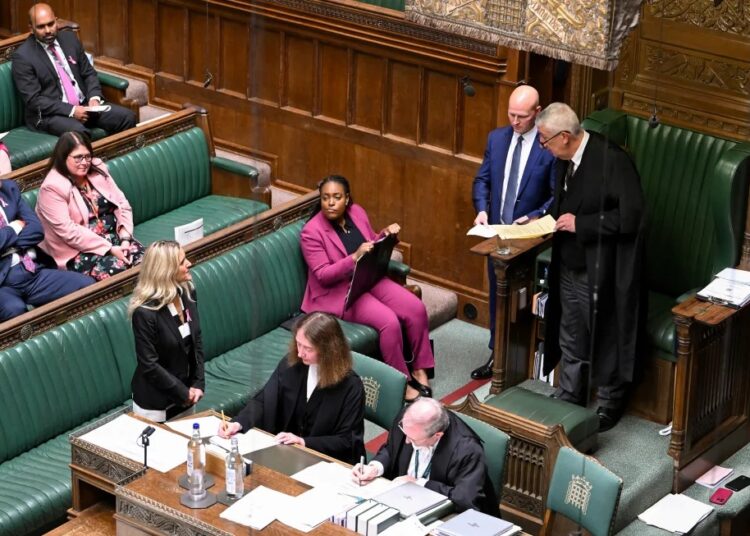Members of the British parliament on Friday voted to legalise assisted death, approving a contentious proposal that would make the United Kingdom one of a small handful of nations to allow terminally ill people to end their lives.
Lawmakers in the House of Commons voted 330 against 275 to support the bill, after hours-long debate in the chamber and a years-long campaign by high-profile figures that drew on emotional first-hand testimony.

Britain is now set to join a small club of nations to have legalised the process, and one of the largest by population to allow it.
The bill must still scale the House of Lords and parliamentary committees, but Friday’s vote marked the most important hurdle.
The bill would allow people with terminal conditions and less than six months to live to take a substance to end their lives, as long as they are capable of making the decision themselves.
Two doctors, and then a High Court judge, would need to sign off on the choice.
Canada, New Zealand, Spain, and most of Australia allow assisted dying in some form, as do several states in the United States including Oregon, Washington and California.
The discussion surrounding the issue significantly split lawmakers, many of whom have struggled to take a stance during a particularly tense week in Westminster.
MPs were allowed a free vote on the matter, which means they can back either side based on their personal beliefs without facing any political consequences.
Proponents of the bill say assisted dying can bring dignity to terminal patients at the end of their lives, averting months of suffering and physical decline, and easing pressure on the country’s palliative, or end-of-life services.
Polling indicated that a comfortable majority of the public supports assisted dying.
Critics worry that the safeguards in the bill are inadequate, leading to concerns that patients might feel obligated to choose assisted death to avoid being a burden on their families.
Additionally, there are worries that this proposal has been presented to MPs, many of whom are still new to their roles after July’s election without sufficient time for a comprehensive impact assessment or thoughtful consideration.
In an open letter to MPs ahead of the vote, a BBC TV presenter with advanced lung cancer who has become a prominent supporter of assisted dying, Esther Rantzen wrote, “Under our current criminal law, the only choice for most people who are terminally ill, if they are facing an agonising death, is between suffering, Switzerland or suicide.”
Rantzen has previously said she is considering using the Swiss assisted dying-clinic Dignitas to end her life.
She urged MPs on all sides to vote on the issue. “This will probably not come before Parliament as an issue to debate for another decade,” she wrote. “How many more will be forced to suffer until then?”
The proposed bill is broadly in line with the Oregon model, and does not go as far as Switzerland, the Netherlands, and Canada, which allow assisted death in cases of suffering, not just for terminally ill people.
It differs from euthanasia, the process in which another person deliberately ends someone’s life to relieve suffering.
It is currently a crime to help somebody die in England and Wales, punishable by up to 14 years in prison. Performing euthanasia on a person, meanwhile, is considered murder or manslaughter in these countries.





